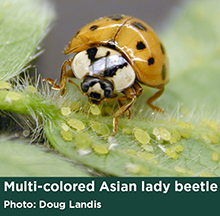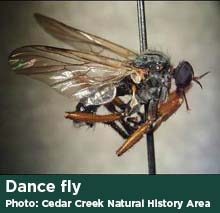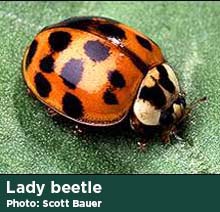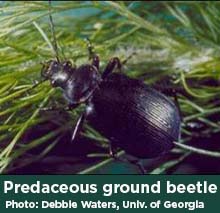Biocontrol
 Biological control is the use of predators, parasites, or pathogens to suppress a pest population and decrease the damage it causes. Conserving beneficial predators and parasites around the farm or garden has been recommended to help suppress pests and increase crop yields. Native plants may play a role in helping to enhance the abundance and performance of these helpful arthropods.
Biological control is the use of predators, parasites, or pathogens to suppress a pest population and decrease the damage it causes. Conserving beneficial predators and parasites around the farm or garden has been recommended to help suppress pests and increase crop yields. Native plants may play a role in helping to enhance the abundance and performance of these helpful arthropods.
Many beneficial predators and parasites (also known as natural enemies) rely on plant nectar and pollen to help sustain them. In addition to these food sources, plants can also provide needed alternative prey and shelter from adverse environmental conditions. For example, one important parasite of the European corn borer in Michigan is the braconid wasp Eriborus terebrans. It will live for over 14 days in corn fields if provided with a nectar substitute, but only 2 days with no sugar. These food resources are typically not present in Michigan corn fields so that wasps needed to travel to field edges to find them. Native perennial plants can provide natural enemies, such as E. terebrans, with the resources they need to live longer, reproduce, and better control pest insect populations.






 Print
Print Email
Email